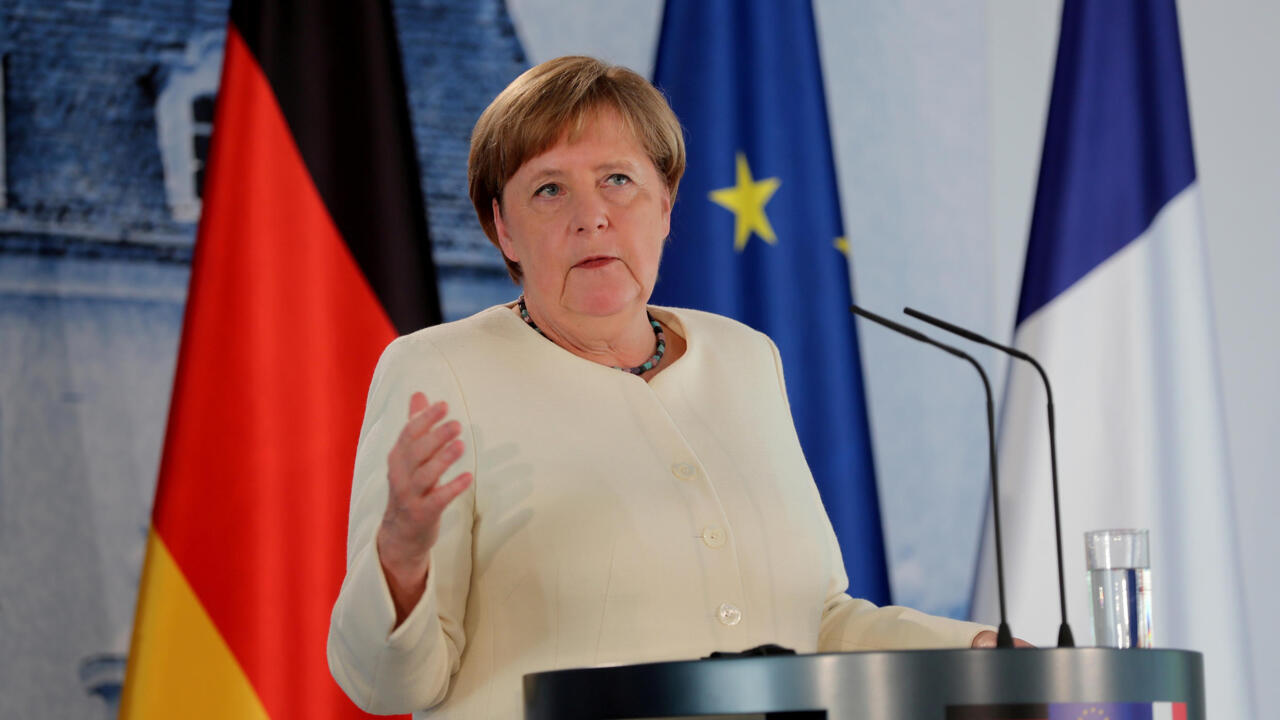Germany began its presidency of the European Union on Wednesday July 1 in the face of historic challenges, such as the impact of the coronavirus. For Angela Merkel, the challenge is to complete her entry into the European Pantheon.
The chancellor and her team had been preparing for this deadline for months, the first for Berlin since 2007 and one of the last opportunities for the German leader to shine on the international scene before her political retirement scheduled for the end of 2021.
In power without interruption for 15 years, a record of longevity for a leader in Europe, the Chancellor has a unique chance to erase the bad image left by her budgetary orthodoxy during the Greek crisis of 2011.
The kickoff of this presidency was symbolically given Tuesday evening with the projection on the legendary Brandenburg Gate in Berlin of the slogan, available in several languages, "All together to relaunch Europe".
Covid-19 at the heart of European issues
Brexit, climate, immigration ... There was no shortage of projects during these six months of presidency. But the coronavirus has swept away all scenarios. Still threatened by a second wave of contamination, the European Union is facing "economic challenges that we have never known in decades, or even never before," said the Chancellor on Monday in an interview with Emmanuel Macron . "The expectations weighing on our shoulders are very heavy," she acknowledged, fearing a new populist push for lack of "solidarity" between European countries.
Some congratulate themselves that this presidency is due to Germany, "a country whose economy is [still] the strongest in the Union, which has coped better than many others with the pandemic [at least until present], and led by a stable government "on a continent in turmoil, summarized Tuesday the German economic daily Handelsblatt.
The German presidency will kick off with a summit of European leaders organized on 17 and 18 July in Brussels, decisive for the future of Europe. The 27 will try to find an agreement on the recovery plan of 750 billion euros against the coronavirus, with for the first time funds borrowed jointly by the EU: Angela Merkel has agreed to break a taboo political in Germany for that.
Find an agreement on the European recovery plan
Angela Merkel, like the French president, put pressure on their partners on Monday to reach an agreement in July, before the summer break. "We hope that we will find a solution, even if there is still a long way to go," said the Chancellor alongside the French president, with whom she presented an initiative at the end of May paving the way for the Commission's proposal on the plan. stimulus.
To reach a compromise, it will be necessary to overcome the reluctance of the four so-called "frugal" countries because they are supporters of budgetary orthodoxy. They are the Netherlands, Austria, Sweden and Denmark, very reserved with regard to the project supposed to benefit above all the countries of the South, the most affected by the pandemic.
"The famous frugal countries are countries that are net beneficiaries of the functioning of the single market (...) it is not in their interest to see certain members affected", warned Emmanuel Macron, for whom Europe is at a "moment of truth". If a budgetary agreement is reached, the presidency will be partly successful.
Brexit still pending
But there will be another very big piece, Brexit. After weeks of standing still, the EU and the United Kingdom, which left the Union on January 31 and continues to apply European rules until December 31, have resumed their discussions.
If no agreement is negotiated by then, the only rules of the World Trade Organization (WTO), with their high tariffs and extensive customs controls, would apply to trade relations between these partners. What weaken the European economies a little more.
With AFP
The France 24 week summary invites you to come back to the news that marked the week
I subscribeTake international news everywhere with you! Download the France 24 app
google-play-badge_FR
